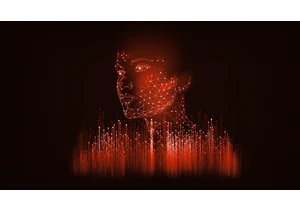When fans come to the Mercedes-Benz Stadium to watch the Atlanta Falcons play this football season, they’ll be able to enter the stadium—and even buy food and drinks—without having to pull out their phones, ID, or credit cards.
That’s thanks to a facial recognition system that allows fans to take a selfie in the ticketing app before the game, or on tablets provided at the entrance, then enter through dedicated lanes that don’t require them to show a physical or digital ticket, only their faces.
“It was the smoothest that I had ever experienced, and I go to a lot of sporting events,” says Todd Zeiler, VP of wireless engineering at AT&T, which provides connectivity in the stadium.
And when fans make food and drink purchases at concession stands, they can similarly complete the transaction without needing to pull out an ID or credit card, and the items are quickly charged to their payment methods of choice.
Security personnel monitor the technology and can get notifications of any mismatches or attempts to commit fraud—like someone trying to get purchases charged to another nearby ticket holder—but generally the system runs without much human intervention, says Zeiler.
Biometric ticketing and concessions are becoming increasingly common at sports stadiums: Teams including the New York Mets and Cleveland Browns have offered face-based ticketing and payment options, and a Miami Formula 1 race this year allowed fans to purchase merchandise using biometric authentication.
The systems are designed to speed admissions and checkouts—and reduce the awkward fumbling of juggling wallets, hot dogs, and beer. And they’re part of a general push to use digital technology to improve the game day experience, says Zeiler, who points to AT&T’s investment in fan-facing Wi-Fi and cellular connectivity in the Atlanta stadium, delivering enough bandwidth to let fans FaceTime friends and family or even stream clips from other NFL games while at their seats, whether they’re using AT&T or another carrier.
“They’re watching a game while they’re sitting at the game,” says Zeiler. “There’s a lot of connectivity pressure.”
Zeiler also emphasizes the security of the AT&T network. “It’s an absolute nonstarter if there’s not privacy and security across that ecosystem,” he says.
And the stadium has said facial data is securely stored, not sold or shared with third parties, and deleted after 365 days of inactivity. Still, facial recognition at stadiums has proven somewhat controversial, with Las Vegas Police pushing back against plans to require facial scans from all working at the Raiders’s Allegiant Stadium, including cops.
For fans, the biometric experience remains optional thus far, so those wary of uploading a facial scan to attend a game can stick to traditional ticketing and payment methods.
“I think one of the most important things is that it is explicitly opt-in and that there is an alternative for people who do not want to opt in,” says Matthew Guariglia, senior policy analyst at the Electronic Frontier Foundation.
Guariglia cautions that there are generally few legal protections yet for biometric data besides a company’s assurance of how the information will be safeguarded because unlike with passwords or account numbers, biometric data can’t be changed if it’s leaked or stolen. “You only have one face,” he says. Still, it’s not spoof-proof.
But it seems likely that for many sports fans, increasingly accustomed to using biometric technology to log in to their phones and check in at the airport, the convenience factor could outweigh concerns about data leaks.
Autentifică-te pentru a adăuga comentarii
Alte posturi din acest grup

Lore isn’t just for games like The Elder Scrolls or films like The Lord of the Rings—online, it has evolved into something entirely new.
The Old English word made the s

Ben Sweeny, the salesman-turned-comedian behind that online persona Corporate Sween, says that bosses should waterboard their employees.
“Some companies drown their employees with



As I write this, the most pleasing sound is washing over me—gentle waves ebbing and flowing onto the shore. Sadly, I’m not actually on some magnificent tropical beach. Instead, the sounds of the s

The relentless hype around AI makes it difficult to separate the signal from the

I don’t know about you, but I tend to think about my favorite tech tools as being split into two separate saucepans: the “classic” apps we’ve known and relied on for ages and then the newer “AI” a
